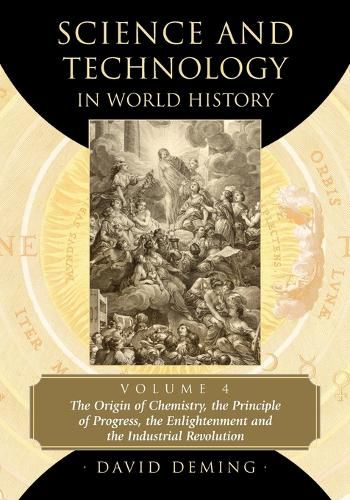Readings Newsletter
Become a Readings Member to make your shopping experience even easier.
Sign in or sign up for free!
You’re not far away from qualifying for FREE standard shipping within Australia
You’ve qualified for FREE standard shipping within Australia
The cart is loading…






This title is printed to order. This book may have been self-published. If so, we cannot guarantee the quality of the content. In the main most books will have gone through the editing process however some may not. We therefore suggest that you be aware of this before ordering this book. If in doubt check either the author or publisher’s details as we are unable to accept any returns unless they are faulty. Please contact us if you have any questions.
The history of science is not just a chronicle of technical achievements, but a human story of discovery intertwined with religion, philosophy, economics, and technology. The modern world began in the sixteenth century when Europeans began to acquire an appreciation for how their achievements surpassed those of the ancient Greeks and Romans. Western Civilization organized itself around the idea that human progress, both technological and moral, was achievable and desirable. Science emerged during the seventeenth century in Europe when people learned to subordinate reason to empiricism. Inspired by the example of physics, men such as Robert Boyle began the process of changing alchemy into the exact science of chemistry. During the eighteenth century, European society became more secular and tolerant. Philosophers and economists developed many of the ideas that determine modern social theories and economic policies. In the latter half of the eighteenth century, the Industrial Revolution fundamentally transformed the world by increasing productivity through specialization and the application of machine power. People became more affluent, better educated, and urbanized. Endemic poverty was eradicated, and the world entered an era of unprecedented prosperity and progress.
$9.00 standard shipping within Australia
FREE standard shipping within Australia for orders over $100.00
Express & International shipping calculated at checkout
This title is printed to order. This book may have been self-published. If so, we cannot guarantee the quality of the content. In the main most books will have gone through the editing process however some may not. We therefore suggest that you be aware of this before ordering this book. If in doubt check either the author or publisher’s details as we are unable to accept any returns unless they are faulty. Please contact us if you have any questions.
The history of science is not just a chronicle of technical achievements, but a human story of discovery intertwined with religion, philosophy, economics, and technology. The modern world began in the sixteenth century when Europeans began to acquire an appreciation for how their achievements surpassed those of the ancient Greeks and Romans. Western Civilization organized itself around the idea that human progress, both technological and moral, was achievable and desirable. Science emerged during the seventeenth century in Europe when people learned to subordinate reason to empiricism. Inspired by the example of physics, men such as Robert Boyle began the process of changing alchemy into the exact science of chemistry. During the eighteenth century, European society became more secular and tolerant. Philosophers and economists developed many of the ideas that determine modern social theories and economic policies. In the latter half of the eighteenth century, the Industrial Revolution fundamentally transformed the world by increasing productivity through specialization and the application of machine power. People became more affluent, better educated, and urbanized. Endemic poverty was eradicated, and the world entered an era of unprecedented prosperity and progress.